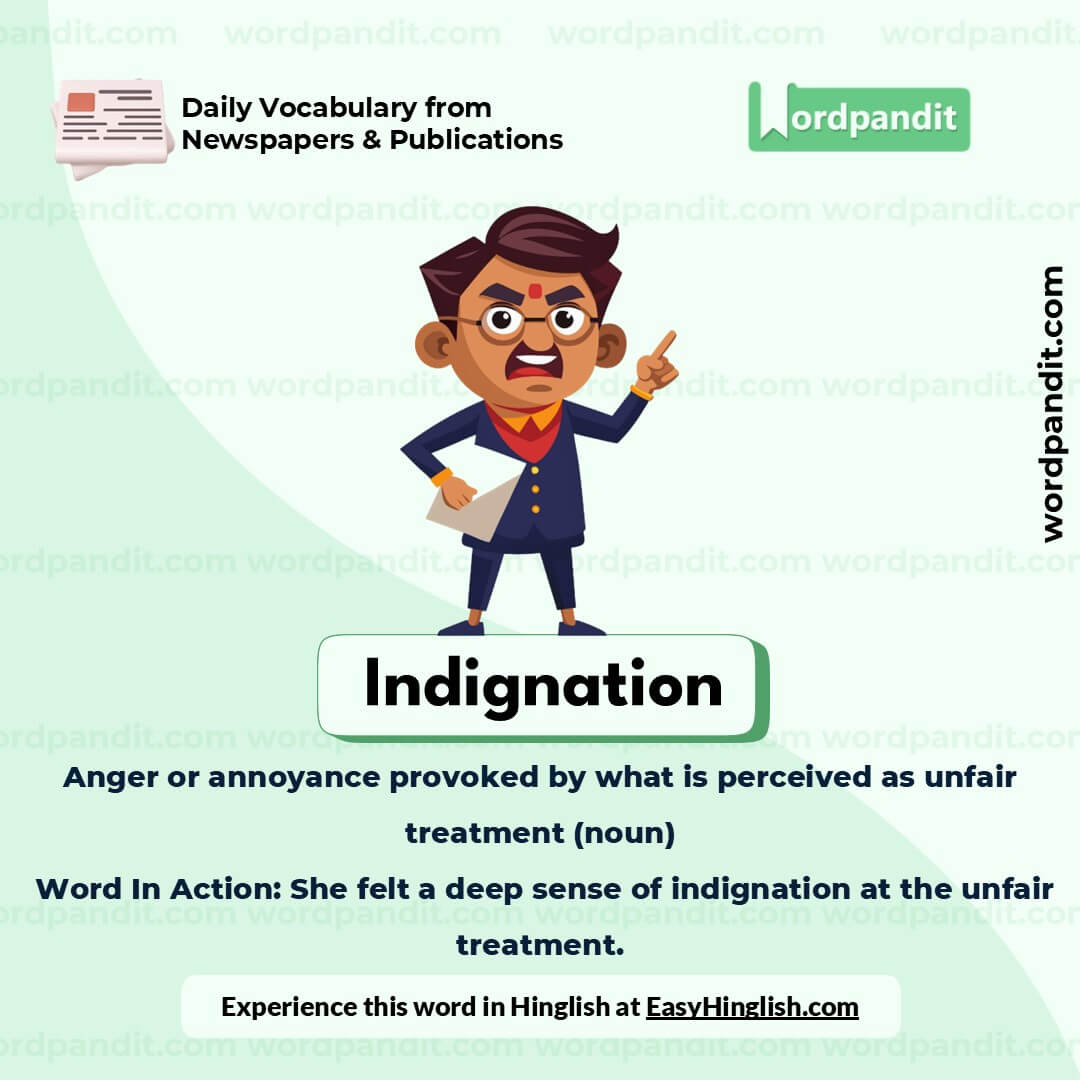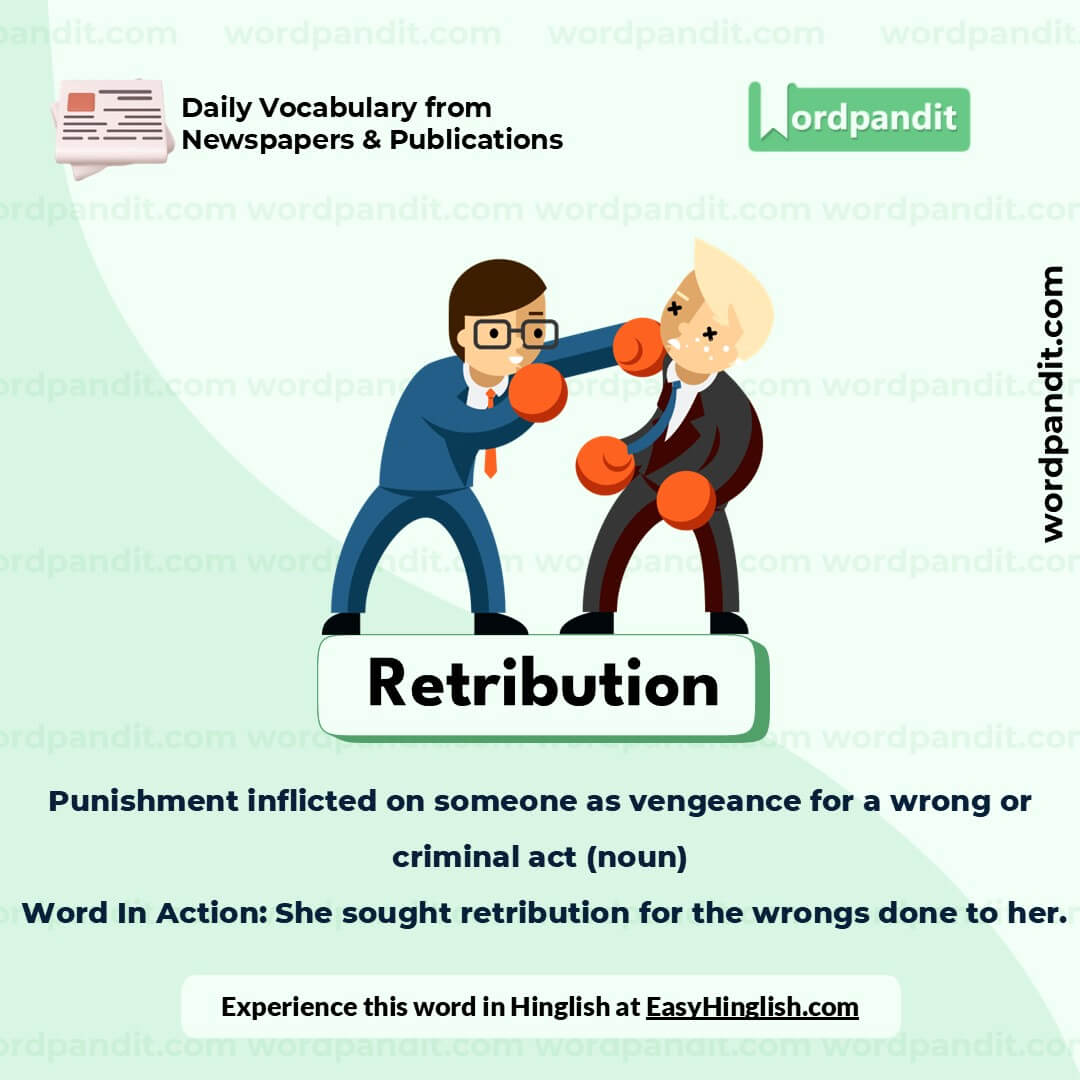Daily Vocabulary from International Newspapers and Publications
Expand Your Vocabulary with Wordpandit’s Global Vocabulary Hub
At Wordpandit, we are committed to helping you develop a truly global vocabulary by drawing from some of the most respected international publications. This section is designed to keep you ahead of the curve by introducing you to words that define global conversations and trends.
The Power of Global Sources
To help you think and communicate on a global scale, we curate vocabulary from renowned international sources, such as:
- The New York Times
- The Washington Post
- BBC
- The Guardian
- The Economist
- Scientific American
- Psychology Today
- And many more...
Stay Global, Stay Competitive
Our daily updates from international publications ensure you are consistently exposed to new words that reflect global news and developments, making sure your vocabulary is not only current but also globally relevant.
Enhance Your Global Perspective
Whether you’re preparing for international exams, aiming to excel in global business communication, or want to enhance your language skills for personal growth, Wordpandit offers the resources you need to thrive in a global context.
Effective Learning, Global Reach
Our learning methodology combines global examples, memory aids, and interactive activities, allowing you to internalize new words effectively and apply them in real-world scenarios.
Begin Your Global Vocabulary Journey Now!
Why Choose Wordpandit?
Practical Learning: Focus on words you'll actually encounter in real-world reading, enhancing your comprehension and communication skills.
Diverse Content: From current affairs to scientific breakthroughs, our varied sources expose you to vocabulary across multiple domains.
Effortless Integration: Make Wordpandit a part of your daily routine. Just a few minutes each day can significantly boost your lexicon over time.
Your Path to Vocabulary Mastery
- Visit our Daily Vocabulary section regularly
- Explore new words and their usage in context
- Practice incorporating these words into your own writing and speech
- Track your progress as your vocabulary expands
Start Your Journey Today
Embark on your vocabulary enhancement journey with Wordpandit. By consistently engaging with our daily posts, you'll build a robust vocabulary that serves you well in academic, professional, and personal contexts.
Remember, a word a day keeps linguistic limitations at bay. Make Wordpandit your daily companion in the quest for vocabulary excellence!
WORD-1: Indignation
Context:
"Imagine the indignation here if a rich megalomaniac offered UK voters the kind of rewards." - The Guardian
Explanatory Paragraph:
The word indignation describes a feeling of anger or strong displeasure provoked by something perceived as unjust, unfair, or offensive. When someone experiences indignation, they feel compelled to respond because they believe a moral boundary has been crossed.
Meaning: Anger or annoyance provoked by what is perceived as unfair treatment (noun)
Pronunciation: in-dig-NEY-shun
Difficulty Level: ⭐⭐⭐ (Intermediate)
Etymology: From Latin indignari, meaning "regard as unworthy," stemming from in- (not) and dignus (worthy)
Synonyms & Antonyms:
Synonyms: outrage, resentment, anger, fury, displeasure
Antonyms: acceptance, satisfaction, contentment, calm
Usage Examples:
- The citizens expressed indignation over the unfair tax policies imposed by the government.
- She felt a surge of indignation when her hard work was overlooked in favor of a less deserving candidate.
- His indignation was evident in his voice as he spoke against the injustice.
- There was public indignation after the company tried to cover up the environmental spill.
Cultural Reference:
"Indignation and compassion form the perfect basis for justice." - Aristotle
Think About It:
Why do you think indignation often leads people to take action? Can indignation be a constructive force?
Quick Activity:
Reflect on a situation where you felt indignation. What triggered this feeling, and how did you respond to it?
Memory Tip:
Think of "indignation" as "injustice ignites anger" to remember that it describes a feeling of anger at something unfair.
Real-World Application:
Indignation is often seen in activism, where people channel their sense of injustice into campaigns for change, helping address issues like inequality, unfair laws, and discrimination.
WORD-2: Naive
Context:
"You can, even so, criticise this for being too starry-eyed and naive." - The Guardian
Explanatory Paragraph:
Naive describes someone who shows a lack of experience, wisdom, or judgment, often trusting others or seeing the world through an overly optimistic lens. It can imply innocence, simplicity, or even an unrealistic view of situations due to inexperience.
Meaning: Showing a lack of experience, wisdom, or judgment; overly trusting (adjective)
Pronunciation: nah-EEV
Difficulty Level: ⭐⭐ (Beginner)
Etymology: From French naïf, meaning "natural, genuine," which comes from Latin nativus, meaning "native, natural"
Synonyms & Antonyms:
Synonyms: innocent, gullible, unsophisticated, trusting, inexperienced
Antonyms: worldly, skeptical, experienced, wise, shrewd
Usage Examples:
- She was too naive to realize that he had been deceiving her all along.
- His naive outlook on business made him an easy target for fraud.
- It was naive of him to think he could solve the issue without proper knowledge or guidance.
- Her naive trust in strangers sometimes got her into trouble.
Cultural Reference:
"Naivety is often seen as the seed of both hope and folly." - Common Proverb
Think About It:
How might being naive sometimes be a positive trait, allowing people to take risks others avoid?
Quick Activity:
Write down a time when being naive led to either a positive or negative experience for you. Reflect on what you learned from it.
Memory Tip:
Remember that "naive" sounds like "knave" without the "k," and think of a "knave" as someone who might easily deceive a naive person.
Real-World Application:
In literature and film, naive characters often represent innocence or serve as a contrast to more jaded or experienced individuals, highlighting the value of fresh perspectives or the danger of too much trust.
WORD-3: Retribution
Context:
"He will use it as a weapon to get the 'retribution' he has promised." - The Guardian
Explanatory Paragraph:
Retribution refers to punishment that is considered to be morally right or deserved, often as a form of revenge or payback for wrongdoing. When people seek retribution, they feel that justice must be served, frequently with a focus on making the offender suffer as they caused others to suffer.
Meaning: Punishment inflicted on someone as vengeance for a wrong or criminal act (noun)
Pronunciation: reh-truh-BYOO-shun
Difficulty Level: ⭐⭐⭐⭐ (Advanced)
Etymology: From Latin retributio, meaning "repayment," from re- (back) and tribuere (to assign or give)
Synonyms & Antonyms:
Synonyms: vengeance, payback, reprisal, punishment, retaliation
Antonyms: forgiveness, mercy, clemency, pardon
Usage Examples:
- Victims of the scam demanded retribution for the losses they had suffered.
- In ancient societies, retribution was often swift and severe for those who broke the law.
- He sought retribution against those who had wronged him, feeling justice had to be served.
- The community called for retribution after the shocking crime was revealed.
Cultural Reference:
"Retribution often follows when justice is ignored." - A common saying on justice and morality
Think About It:
Do you believe retribution is an effective way to achieve justice, or does it sometimes perpetuate a cycle of harm?
Quick Activity:
Imagine a character in a story who seeks retribution. Describe their motivation and whether their desire for revenge changes over time.
Memory Tip:
Think of "re-tribute" as "giving back" in a punitive way, helping you remember that retribution is about returning punishment for wrongdoing.
Real-World Application:
The concept of retribution is common in the justice system, where penalties and sentences are often seen as a way to "pay back" for harm done, balancing the scales of justice.
WORD-4: Overwrought
Context:
"The most recent evidence that Labour’s political compass has been lost is in the unnecessary and overwrought row about its role in the US election." - The Guardian
Explanatory Paragraph:
The word overwrought describes a state of extreme agitation, anxiety, or tension. When something or someone is overwrought, they may appear excessively emotional or overly stressed, often beyond what the situation requires. It can also refer to something that is overdone or overly complicated.
Meaning: In a state of nervous excitement or anxiety; overly elaborate or complicated (adjective)
Pronunciation: oh-ver-RAWHT
Difficulty Level: ⭐⭐⭐ (Intermediate)
Etymology: From "over-" (excessively) and "wrought," past participle of work, meaning "worked up" or "strained"
Synonyms & Antonyms:
Synonyms: agitated, frantic, tense, emotional, overdone
Antonyms: calm, relaxed, composed, straightforward
Usage Examples:
- The critic described the novel as overwrought, with overly complex plots and characters.
- She was so overwrought with worry that she couldn't sleep for days.
- His overwrought reaction to the minor setback surprised everyone in the room.
- The decor of the room was overwrought, with too many clashing colors and patterns.
Cultural Reference:
"Overwrought emotions often cloud sound judgment." - A common observation in psychology and literature
Think About It:
Have you ever felt overwrought over something that, in hindsight, was less significant than it seemed at the time? Why do we sometimes react this way?
Quick Activity:
Think of a situation where you felt overly stressed or anxious. Reflect on how you could have approached it differently to avoid becoming overwrought.
Memory Tip:
Remember "overwrought" by thinking of "overworked emotions"—a state of feeling excessively stressed or strained.
Real-World Application:
Recognizing when someone is overwrought can help in de-escalating tense situations by addressing the root of their anxiety or stress.
WORD-5: Acumen
Context:
"Where was Labour’s political acumen when it was needed?" - The Guardian
Explanatory Paragraph:
Acumen refers to the ability to make quick, insightful, and accurate judgments, often in a particular domain like business or politics. Someone with acumen possesses sharpness and keen insight, allowing them to understand situations clearly and make sound decisions effectively.
Meaning: The ability to make good judgments and quick decisions, particularly in a specific field (noun)
Pronunciation: uh-KYOO-men or AK-yoo-men
Difficulty Level: ⭐⭐⭐⭐ (Advanced)
Etymology: From Latin acumen, meaning "a point" or "sharpness," from acuere, "to sharpen"
Synonyms & Antonyms:
Synonyms: insight, shrewdness, astuteness, sharpness, discernment
Antonyms: ignorance, ineptitude, stupidity, obtuseness
Usage Examples:
- Her business acumen has led the company to new heights of success.
- The detective's acumen allowed him to solve complex cases quickly.
- His political acumen helped him navigate difficult negotiations with ease.
- She has a natural acumen for understanding people’s motivations.
Cultural Reference:
"Acumen is the art of focusing on the essentials." - Derived from business and leadership principles
Think About It:
In which areas of life do you think acumen is most valuable? Can it be developed, or is it an innate skill?
Quick Activity:
Think of a decision you recently made. Reflect on whether using more acumen could have improved the outcome and how you might sharpen your judgment.
Memory Tip:
Remember "acumen" by associating it with "accurate men"—those who have sharp judgment and make precise decisions.
Real-World Application:
Acumen is highly valued in fields such as business, law, and politics, where quick, sound decisions can have major impacts on success or failure.















